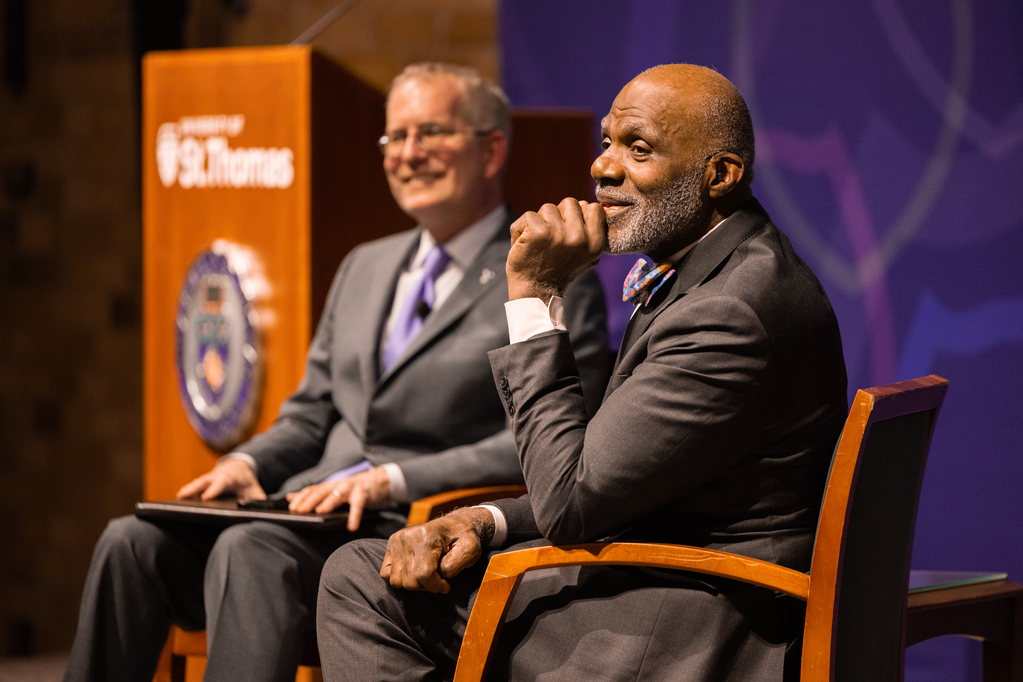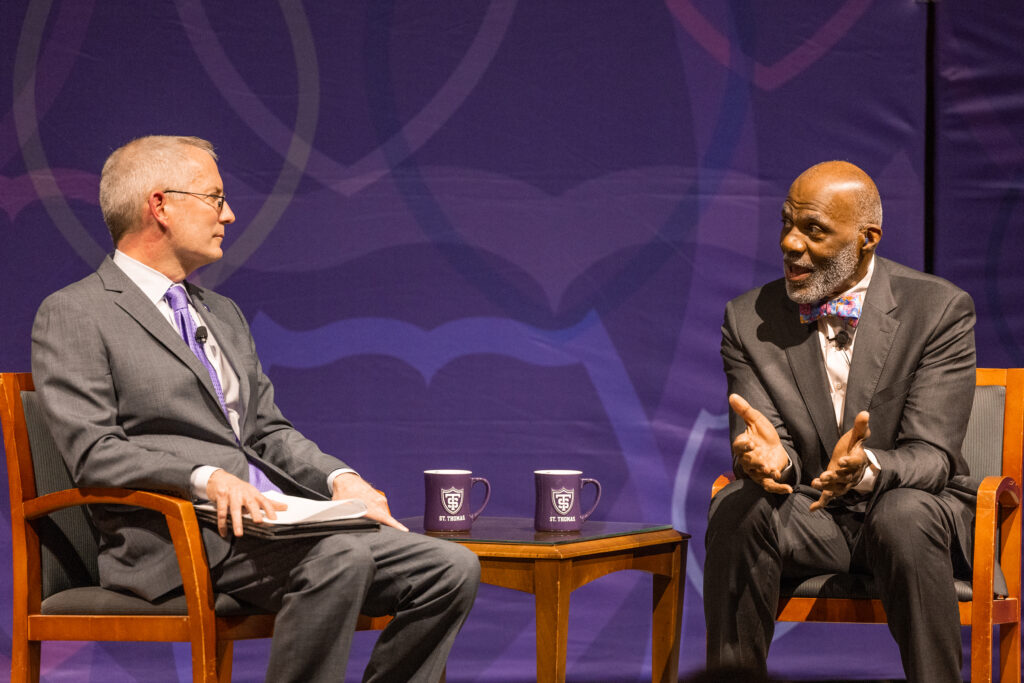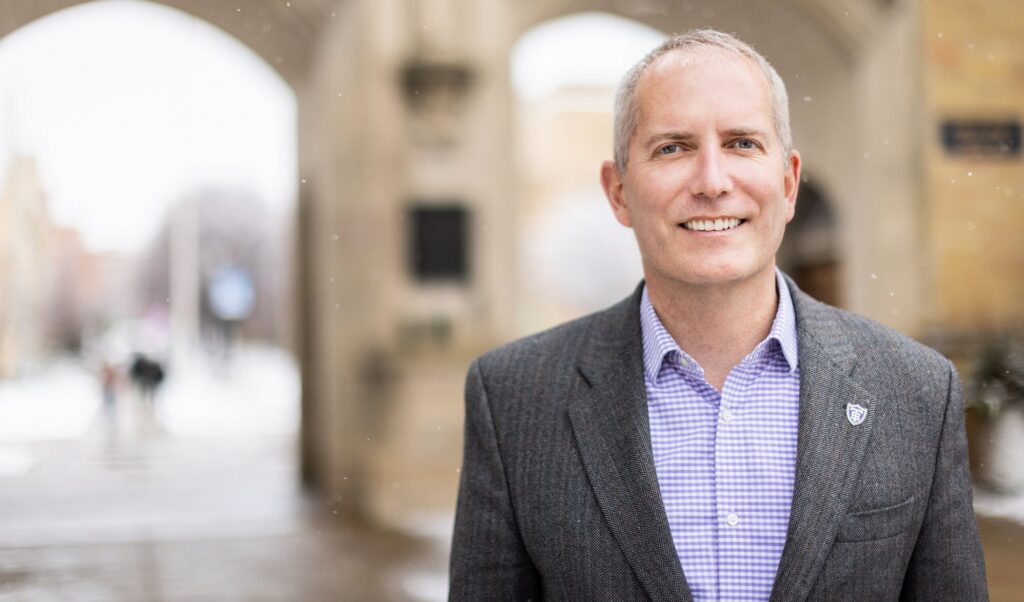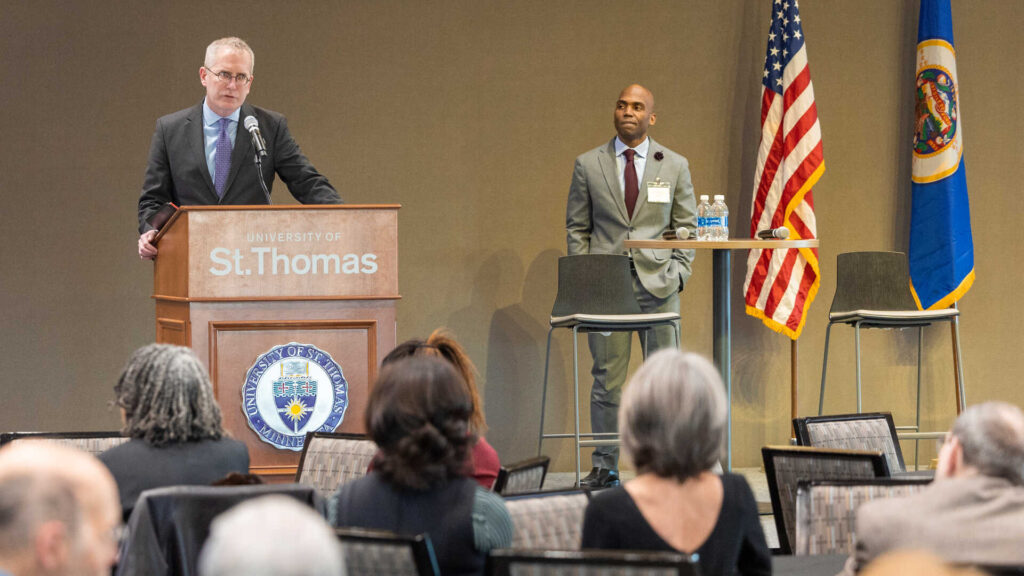St. Thomas is one step closer to becoming a tobacco-free campus on Jan. 1, 2014.
The President’s Staff under Father Dennis Dease endorsed the tobacco-free concept at its May 6 meeting, and a committee will be appointed to work out an implementation plan in conjunction with smoking cessation programs before returning to the President’s Staff this fall for final approval. The policy would affect the St. Paul and Minneapolis campuses but not the Rome campus or the Gainey Conference Center in Owatonna.
More than 30 Minnesota colleges and universities already have tobacco bans. Nationwide, 700 are tobacco free and more than 1,000 are smoke free.
“Research shows that having a tobacco-free campus literally changes the behavior of students,” said Dr. Jane Canney, vice president for student affairs. “They smoke less and have a better understanding of the health and wellness aspects of their lives, and they come to value a tobacco-free environment.”
In the St. Thomas policy, “tobacco” is defined as any lighted cigarette, cigar, pipe, clove cigarette, hookah smoked products, electronic cigarettes and smokeless tobacco in any form. Promotion, sale or distribution of tobacco products and merchandise, including any items carrying tobacco logos, will be prohibited on campus or at any university-sponsored events.
“Compliance with this policy will depend upon the cooperation of all faculty, staff and students as well as campus visitors,” states a policy proposal considered by the President’s Staff. “The university will develop training programs to assist and prepare students and employees to help one another honor the tobacco-free environment that this policy supports.”
Proposal came from students
In the fall semester of 2010, Mike Orth, then president of the sophomore class and until recently president of the Undergraduate Student Government, approached St. Thomas leadership about ways to reduce tobacco use on campus.
“Mike took a real leadership role on the issue,” Canney said. “He formed a USG Tobacco Policy Review Committee during the 2010-2011 academic year, which conducted two student surveys and did thorough research. They involved a lot of students, and they concluded that they wanted to advocate for a tobacco-free campus.”
Orth decided to become involved because he knew the issue would become “incredibly important” for the St. Thomas community. Over time, he became convinced it made sense for St. Thomas to be tobacco free.
“A tobacco-free campus means two things,” he said. “First, that our university offers a safe and healthy place for students, faculty and staff to work, attend class and live. Second, that St. Thomas encourages the entire community to make healthy choices. That has an especially profound impact on students who are developing habits for the rest of their lives.”
Through the surveys and interviews, the USG committee became more familiar with the pros and cons of limited or no tobacco consumption on campus. Supporters objected to inhaling second-hand smoke and believed limits or a ban would promote healthy practices for people to follow for the rest of their lives, including in smoke-free work places. Opponents said a ban would infringe on their personal freedoms and would create safety concerns and littering problems by forcing people to smoke on public property, such as sidewalks, streets and the Summit Avenue median.
“There are strong opinions on both sides of the issue,” Orth said. “A change like this takes time, and we have been careful to include every opinion in the discussion.”
Tobacco-Free Campus work group formed
Following the Undergraduate Student Government recommendation in the fall of 2011, a Tobacco-Free Campus work group was formed. It included representation from faculty, students, exempt staff and non-exempt staff. After 18 months of consultation and research, the work group developed a draft tobacco free campus policy proposal.
This spring, members of the workgroup made nearly 20 presentations to committees and organizations across campus, discussing the proposal and assuring each constituency that it would be involved in future discussions regarding implementation of the policy once it was approved.
“I believe we are ready to move forward as an educational institution and not only become a tobacco-free campus,” Orth said, “but also utilize this opportunity to educate our students, faculty, and staff about living healthier lives.”
Among those participating on the Tobacco Free Campus work group is Dr. Jill Manske, a biology professor who completed a master’s degree in public health at the University of Minnesota last year. Manske and Dr. Jolynn Gardner of the Health and Human Performance Department (also a work group member) are developing tools to assess the attitudes and tobacco use before and after the ban.
Manske said she became involved in the work group a year ago after Canney asked her if she would be interested in serving as faculty representative. She said yes because of its origin as a student-generated initiative.
“It represents the type of student/grass-root ‘working for the common good’ that we hope to inspire in our students,” said Manske, who teaches a course in women’s health. “I also see this as an important women’s health issue. More men than women smoke, but smoking among college-age women has increased since the 1980s for a variety of reasons, including weight control and media exposure.”
Manske cited a 2001 U.S. Surgeon General’s report that women’s death rates due to lung cancer, a disease primarily caused by cigarette smoking, have increased 600 percent since 1950 and that “smoking-related disease among women is full-blown epidemic.”
Added Manske: “I think that anything we can do to counter these social pressures, and to introduce a different culture around tobacco use, is important.”
U of M will have smoking ban
The University of Minnesota Twin Cities campus is the most recent to announce a ban – at least a smoking ban, that is. The University Senate, made up of faculty, students and staff, voted May 2 in favor of a smoking ban and President Eric Kaler concurred, telling the Star Tribune: “A tobacco-free campus has become an expectation … rather than an innovation. It’s about time for us.” The ban could begin in the fall of 2014, and in the meantime officials will determine details such as whether the ban will include chewing tobacco.
Two other U of M campuses already have bans – tobacco in Crookston and smoking in Duluth. Private colleges with tobacco bans are Bethel, Northwestern, St. Catherine and St. Scholastica, and other major public institutions include state universities in Bemidji, Mankato, Marshall, Moorhead, St. Cloud and Winona.






